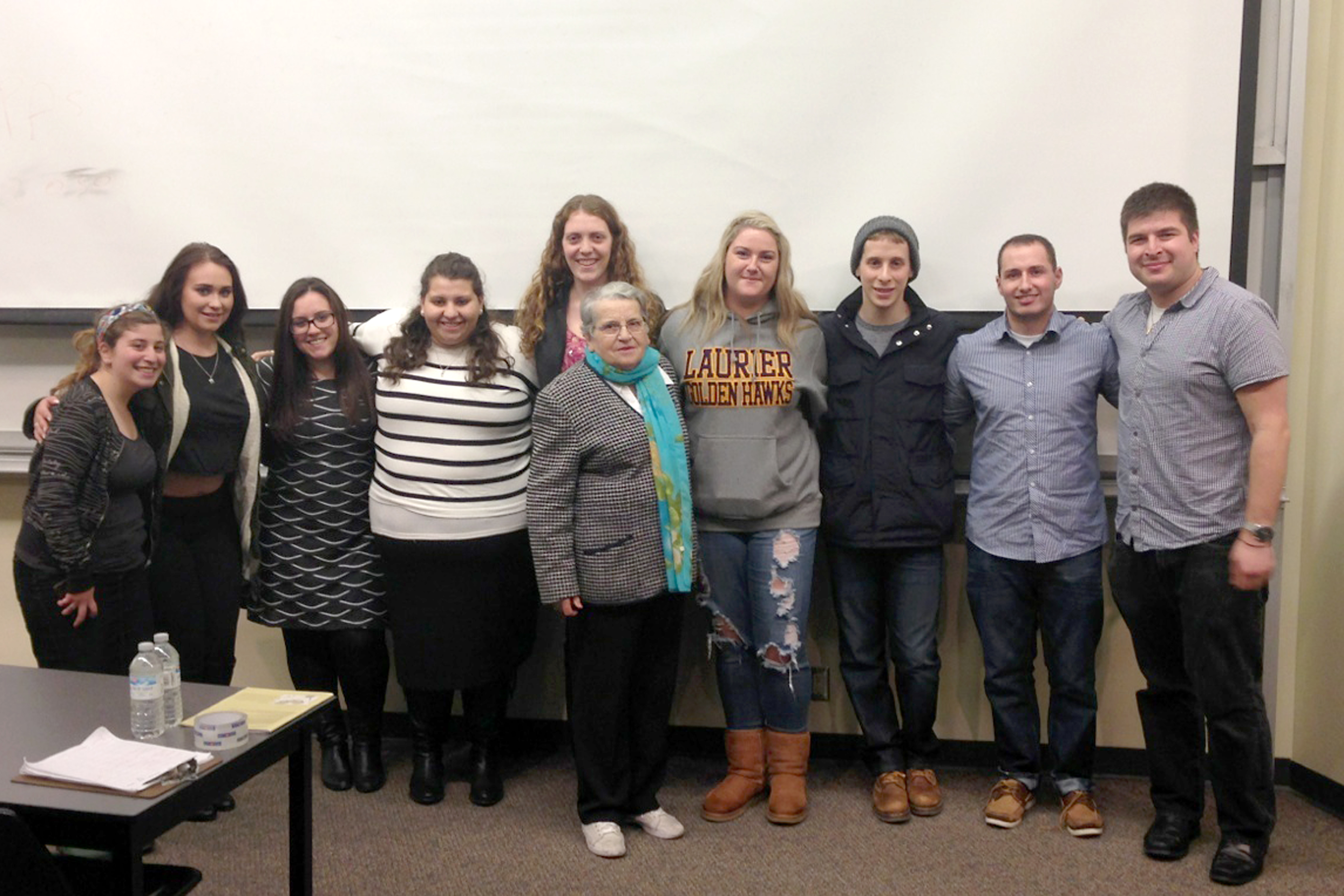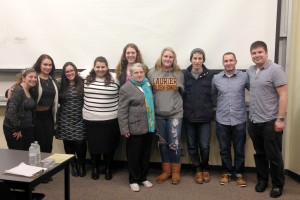Story of survival


Edith Gelbard spent her entire childhood running from Nazis.
Last Wednesday, Gelbard spoke to students and community members at the University of Waterloo and shared her remarkable Holocaust survival story.
Gelbard’s visit was a part of Holocaust Education Week (HEW), which explored different national, generational and cultural narratives of the Holocaust and its aftermath.
Hillel, the centre for Jewish campus life in Waterloo, organized a series of activities in honour of HEW. Students were able to gather for a “reading of the names” of Holocaust victims as well as participate in a Jewish philosophy discussion.
Gelbard’s testimony was a memorable part of the week.
“Holocaust education is extremely important today more than ever before,” said Donna Brenkel, co-president of Hillel Waterloo. “Future generations will not have the first-hand account of what happened.”
“We must help the world to remember the horrors of the Holocaust so that it will not happen again,” she added.
Gelbard’s story began in 1938, when her father, a professional soccer player and businessman, was tipped off by a Nazi officer to leave Vienna, Austria as soon as possible. Her family then headed on the 900 km walk to Brussels, Belgium.
It took them over two weeks to arrive.
“When I was five-and-a-half years old I had to leave everything; the only thing I was able to take was my doll,” she said.
Her family was eventually separated and Gelbard had to change her Jewish identity in order to hide herself.
At this time, Edith and a few of her friends had to change their names and their back-stories, and pretend to be orphans.
“We also had to pretend we were Catholic, so we went to Church,” Gelbard explained.
At the end of the war, Gelbard was reunited with her mother, brother and sister.
She soon learned that although her father had been liberated from a concentration camp, he died when well-meaning American soldiers gave him too much food too quickly, sending his malnourished body into shock.
“We tried to have a life after … but no one talked about what we went through,” she explained.
In 1953, Gelbard married and moved to Canada. She currently lives in Toronto. Her granddaughter, Jessica, attends Wilfrid Laurier University and introduced Gelbard at Wednesday’s event.
Gelbard’s courageous story also inspired the national bestseller book Hiding Edith by Kathy Kacer, which has recently been added to the Holocaust Education Series of novels.
Brenkel reflected on the significance of Gelbard’s testimony.
“Holocaust survivors remind us of the incredible resilience and strength of human beings in the face of unspeakable horrors,” she said.
Hillel Waterloo concluded HEW with an intercultural Shabbat dinner at UW to honour the 11 million that perished.

